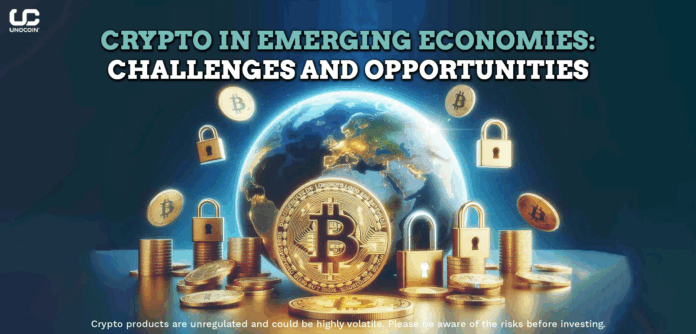In recent years, emerging economies have increasingly turned to cryptocurrencies as powerful tools for financial inclusion and economic empowerment. With vast unbanked populations and limited access to traditional banking services, digital currencies present an alternative pathway for individuals to engage with the global economy.
Why Crypto Appeals to Emerging Economies
In many developing countries, banking infrastructure is either inadequate or inaccessible to large segments of the population. Cryptocurrencies offer a solution by enabling anyone with internet access to send, receive, and store value securely.
- Remittances: Crypto can drastically reduce the cost of cross-border transfers, which is a lifeline for many families relying on remittances from abroad.
- Volatility Hedge: In countries experiencing hyperinflation, digital assets provide a more stable store of value compared to local currencies.
- Access to Global Markets: Crypto gives users a chance to participate in decentralized finance (DeFi), potentially opening new income streams and investment opportunities.
Real-World Examples
- El Salvador made headlines by adopting Bitcoin as legal tender, aiming to boost financial inclusion.
- Nigeria has seen rapid adoption of peer-to-peer crypto platforms as a workaround to currency instability and strict banking controls.
- Argentina citizens increasingly turn to stablecoins like USDT to preserve purchasing power amid soaring inflation.
Challenges to Adoption
Despite the promise, significant barriers remain:
- Regulatory Uncertainty: Many governments lack clear frameworks, making crypto use legally ambiguous and potentially risky.
- Technological Gaps: Limited internet access and low digital literacy in rural areas impede widespread adoption.
- Security Concerns: Without proper safeguards, users are exposed to scams, hacks, and phishing attacks.
Building for the Future
To overcome these challenges, a collaborative approach is essential. Governments, private companies, NGOs, and international organizations must invest in:
- Education: Raising awareness about safe crypto practices.
- Infrastructure: Expanding internet access and mobile connectivity.
- Regulation: Creating frameworks that balance innovation with consumer protection.
The Road Ahead
If these obstacles can be addressed, cryptocurrencies could become a cornerstone of economic transformation in developing nations. By enabling access to financial tools and empowering individuals to take control of their assets, crypto holds the potential to drive growth, resilience, and prosperity.
As adoption increases, emerging markets could lead the way in showcasing how decentralized technologies can bridge the gap between financial exclusion and inclusion.
Interested in learning more about how crypto is reshaping the world? Follow our blog for insights, tips, and the latest developments in digital finance.
Please find the list of authentic Unocoin accounts for all your queries below:
Twitter: https://twitter.com/Unocoin
Telegram Group: https://t.me/Unocoin_Group
Telegram Channel: https://t.me/+fasQhTKBsfA5N2Zl
E-mail id: [email protected]
Other links: linktr.ee/unocoin
Contact details: 7788978910 (09:30 AM IST – 06:30 PM, Mon-Sat)
App store link: https://apps.apple.com/us/app/unocoin/id1030422972?ls=1
Playstore link: https://play.google.com/store/apps/details?id=com.unocoin.unocoinwallet
Disclaimer: Crypto products are unregulated as of this date in India. They could be highly volatile. At Unocoin, we understand that there is a need to protect consumer interests as this form of trading and investment has risks that consumers may not be aware of. To ensure that consumers who deal in crypto products are not misled, they are advised to DYOR (Do Your Own Research).







